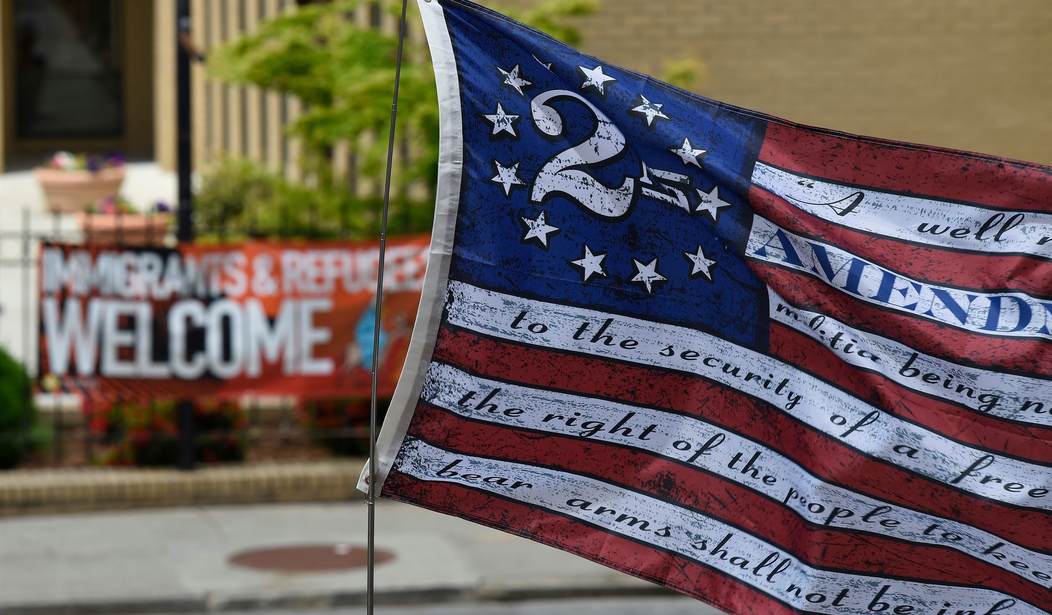There are some who think that the Second Amendment doesn’t protect the right to keep and bear arms for people like you and me. One of those is President Joe Biden, who has commented about his disagreement with the Heller decision where the Supreme Court ruled that there is an individual right to keep and bear arms.
For these people, they believe the Second Amendment is a collective right, rather than an individual one.
So, do they have a point?
Let’s start by looking at the text of the amendment.
A well regulated militia being necessary to the security of a free state, the people’s right to keep and bear arms shall not be infringed.
One might think this is incredibly straightforward. You would apparently be wrong. I mean, people look at this and seem to think this is a collective right, so clearly they’re not getting the same things out of this that I do.
First, some focus on the phrase “well regulated militia” to suggest this had nothing to do with you or me owning an AR-15.
My typical response to this is to point out that the phrase “well regulated” meant “properly functioning” as it was understood in the 18th century. That’s the meaning the amendment’s authors intended.
Others point out that if you remove that introductory clause from the sentence, it still makes sense, which means that clause doesn’t carry the weight others seem to ascribe. Especially since it doesn’t make sense on its own.
However, there’s a simpler response. After all, what in that phrase actively negates the rest of the amendment? Nothing at all.
So, even if the Founding Fathers intended the phrase exactly as anti-Second Amendment fans claim, it really doesn’t change anything at all.
Another argument people make is that “the people” don’t refer to folks like you or me, but instead refer to us collectively. This one always annoys me. Why? Because it ignores some other examples of “the people.”
Like, the First Amendment:
Congress shall make no law respecting an establishment of religion, or prohibiting the free exercise thereof; or abridging the freedom of speech, or of the press; or the right of the people peaceably to assemble, and to petition the government for a redress of grievances.
The Fourth Amendment:
The right of the people to be secure in their persons, houses, papers, and effects, against unreasonable searches and seizures, shall not be violated, and no warrants shall issue, but upon probable cause, supported by oath or affirmation, and particularly describing the place to be searched, and the persons or things to be seized.
The Ninth Amendment:
The enumeration in the Constitution, of certain rights, shall not be construed to deny or disparage others retained by the people.
Or the Tenth Amendment:
The powers not delegated to the United States by the Constitution, nor prohibited by it to the states, are reserved to the states respectively, or to the people.
Also, let’s note the phrasing of the Tenth Amendment, for a moment.
Now, if the Second Amendment was intended to cover the states’ ability to arm a militia, then why not say that? They expressly mention the states in the Tenth Amendment, so if that was their intention for the Second Amendment, why not just say so?
In every single instance in the Bill of Rights when “the people” is used, the universal opinion is that it’s an individual right…except in the Second Amendment. Then and only then does it somehow mean a group of people in some manner, yet it doesn’t say the states, which we can tell the authors had no issue with mentioning expressly.
However, if it’s a collective right but not a “right” guaranteed to the states themselves, then what groups? It wouldn’t be the federal government, since there’s absolutely no reason to preserve their right to do much of anything since they’re the only ones who could restrict that right in the first place. Plus, any act contrary to their self-imposed restrictions would simply override their earlier efforts.
No, it’s not the federal government. If it’s not them and it’s clearly not the states–after all, it doesn’t say the states there but does elsewhere in the Bill of Rights–then which collective could it mean?
Unless those arguing it’s a collective right intend for us to band together to form militias and for those militias to purchase firearms for the group, I fail to see how it could possibly mean a collective entity in any way, shape, or form.
The only logical conclusion one can reach is that “the people” refers to individual citizens who opt to purchase firearms for their own reasons.
In other words, Justice Scalia was right when he wrote the Heller decision and it is, indeed, an individual right to keep and bear arms. Any attempt to claim otherwise requires one to make ridiculous claims that fall flat in the face of the plain language of the Bill of Rights and should be rejected out of hand.







